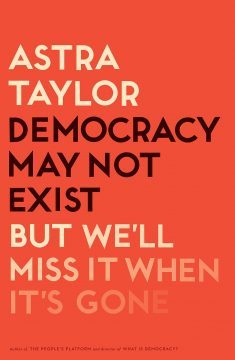 Lida Maxwell in the LA Review of Books:
Lida Maxwell in the LA Review of Books:
IN ANNA BURNS’S Man Booker Prize–winning novel, Milkman, the main character — “middle sister” — learns about two-thirds of the way through the book that she has been defined as a “beyond-the-pale” in her community. This status comes not as a result of her attempts to avoid the sexual stalking of a local paramilitary leader (“Milkman”), but instead as a result of her habit of walking while reading. “Longest friend” tells her that her behavior is “not natural”; it is “disturbing,” “deviant,” “[n]ot public-spirited,” “[n]ot self-preservation.” Walking while reading, her friend tells her, is an activity that is “incapable of being mentally grasped, of being understood.” She is “[going] around in a political scene” with her “head switched off.”
Of course, middle sister’s head is very much switched on, but not in the way her community demands. Rather than using her head to defer to what Astra Taylor calls “constraining common sense,” middle sister goes about in public letting her body and mind inform each other, opening up new possibilities for thought and movement.
Burns’s book is my example, not Taylor’s, but “walking while reading” is as good a description as any for the kind of democratic citizenship Taylor advocates in her magnificent, paradigm-shifting new book, Democracy May Not Exist, but We’ll Miss It When It’s Gone. Taylor’s book challenges the very old idea that the demos is the “belly” of the polity, which depends on the “head” of elites to direct and guide it.
More here.
